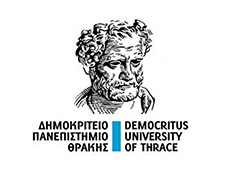INTOMED Symposium
Biologicals/Biopesticides/Biostimulants and EU policies
Online / December 4, 2020, 09:00-18:00CET
Find information on how to join Zoom meetings here
INTOMED Symposium coincides with the end of the 1st year of the project. Because of the pandemic, it will be held online. Through this event, INTOMED partners aim to bring together researchers, and public and private sector representatives to consider integration opportunities and best practices in biological control in the context of current EU policies.
Registration is now closed
Registration ends December 1, 2020, 12:00 CET
A link to join the webinar will then be sent to all eligible participants.
click here to download the symposium flyer or here to download the symposium program
Program
| Time | Section | Facilitator/Chair |
| 09.00-09.10 | Opening
Maria Michalopoulou, Democritus University of Thrace, Vice Rector Kalliope Papadopoulou, INTOMED Coordinator |
Maria Pappas |
| 09.10-09.40 | Keynote talk: A new approach to sustainable olive fly management: Entomopathogenic fungus Metarhizium brunneum targeting preimaginals in the soil reduces adult populations in the spring
Quesada-Moraga E., Garrido-Jurado I. & Yousef-Yousef M. |
|
|
Panel: Biologicals/Biopesticides/Biostimulants |
||
| 09.40-10.10 | Keynote talk: Eliciting tomato plant defenses by exposure to HIPVs: a sustainable approach to manage agricultural pests
Pérez-Hedo M. & Urbaneja A. |
Meriem M’saad |
| 10.10-10.25 | Looking for peptides in plant defense: systemin as a model
Pastor V., Pastor-Fernández J., Sanmartín N., Manresa M., Sánchez-Bel P. & Flors V. |
|
| 10.25-10.40 | Developing tools to decipher the mechanisms of Systemin-Induced Resistance
Pastor-Fernández J., Pastor V., Sánchez-Bel P., Sanmartín N. & Flors V. |
|
| 10.40-11.00 | Discussion & Break | |
| 11.00-11.30 | Keynote talk: Pathways for advancing pesticide policies
Finger R. |
|
| 11.30-11.45 | Developing decision support systems based on protection efficacy to promote the use of microbial biocontrol agents in the field
Pressecq T., Nicot P., Tchamitchian M., & Bardin M. |
|
| 11.45-12.00 | Biopesticides in Tunisia: current status and perspectives
Hamada W. & Krida G. |
|
| 12.00-12.15 | Hormonal/Algal-mediated priming and biological control agents as alternatives to agrochemicals for the control of Orobanche in legumes
Mentag R. |
|
| 12.15-12.45 | Keynote talk: Environmental RNA interference in two‑spotted spider mite, Tetranychus urticae
Grbic M. |
|
|
12.45-13.30 |
Discussion & Lunch Break |
|
|
Panel: EU policies |
||
| 13.30-13.45 | Critical overview of the data requirement for microbial active substances used in plan protection products in the EU
Hernández Jerez A. |
Rachid Mentag |
| 13.45-14.00 | PPPs and F2F, a concord or a tug of war?
Theodoris P |
|
| 14.00-14.15 | Biopesticides in Tunisia and their use in IPM programs
Essia Limem |
|
| 14.15-14.30 | Fertilizer products regulatory outlook
Giannakopoulou F., Katsoulieri Ag. |
|
| 14.30-14.45 | Sustainable control of pests
Carvalho P |
|
|
14.45-15.15 |
Discussion & Break |
|
| 15.15-15.30 | Exogenous application of RNAi molecules in plants: achievements, limitations, and perspectives
Dalakouras A. |
Maria Pappas |
| 15.30-15.45 | Efficacy of commercial fungal bio-fertilizers
Kokkoris V. |
|
|
Industry talks |
||
| 15.45-16.15 | Keynote talk: The role of Bioprotection in the transition to regenerative agriculture
Jennifer Lewis (IBMA) |
|
| 16.15-16.30 | Perspective from the industry on the registration and development of microbial based biopesticides Sandro Frati (Biobest Group NV) | |
| 16.30-16.45 | Novacrid, a fungal biopesticide – from the lab to the market
Deloge, M. (Elephant Vert) |
|
| 16.45-17.00 | Applied aspects of priming and legal regulations
Artal J. (ARTAL SL) |
|
|
17.00-18.00 |
General Discussion & Closing |
Paula Baptista Victor Flors Kalliope Papadopoulou |

KEYNOTE SPEAKERS

Dr. Jennifer Lewis
The role of Bioprotection in the transition to regenerative agriculture
More info

Prof. Enrique Quesada Moraga
A new approach to sustainable olive fly management: Entomopathogenic fungus Metarhizium brunneum targeting preimaginals in the soil reduces adult populations in the spring
More info

Prof. Robert Finger
Pathways for advancing pesticide policies
More info

Prof. Alberto Urbaneja
Eliciting tomato plant defenses by exposure to HIPVs: a sustainable approach to manage agricultural pests
More info
https://scholar.google.es/citations?user=SJMPvKUAAAAJ&hl=es
http://www.researcherid.com/rid/C-9071-2011

Dr. Miodrag (Mike) Grbic
Environmental RNA interference in two‑spotted spider mite, Tetranychus urticae
More info
REGISTRATION FORM
Registration is free but mandatory. Information about access to join the online conference will be sent to you after registration.
Maximum number of participants: 200
Registration is closed.
Data Protection Notice:
Before registering please be informed about the following:
Your data is going to be used by the organisers for the purpose of responding to the needs of organizing the INTOMED Symposium. The joint data controllers are Democritus University of Thrace (DUTH) and University of Thessaly (UTH), who are responsible for the overall organization of the event, the online registration of the participants as well as the communication with the participants before and after the end of the conference.
The purpose of the processing of your data is 1) handling participation requests, 2) reporting on the conference, as well as 3) event follow-up actions, such as sharing presentations among participants and feedback collection.
The following data are processed:
Contact data, such as first name, last name, affiliation, occupation, e-mail address. The data collected will be deleted by the organizers unless you promptly agree that we can share your name, organization and email address with the other participants in the interest of facilitating communication among you.
Please note that the conference will not be recorded. However, with your registration you accept that you may be photographed on behalf of the organisers during the conference and you authorize them to make free use of the photos for dissemination purposes of INTOMED.
If you want us not to take photos of you, please contact us at mpappa@agro.duth.gr and kalpapad@bio.uth.gr
DUTH and UTH are compliant with all legal procedures in respect of personal data processing, as set out in the applicable European and national law, including the General Data Protection Regulation (EU/2016/679). We would like to inform you that you have the right to access, the right of information, correction, update, blocking and/or erasure of your personal data in accordance with the aforementioned EU Regulation and applicable national laws.
To exercise your rights, you may contact the organizers of the conference at mpappa@agro.duth.gr and kalpapad@bio.uth.gr

